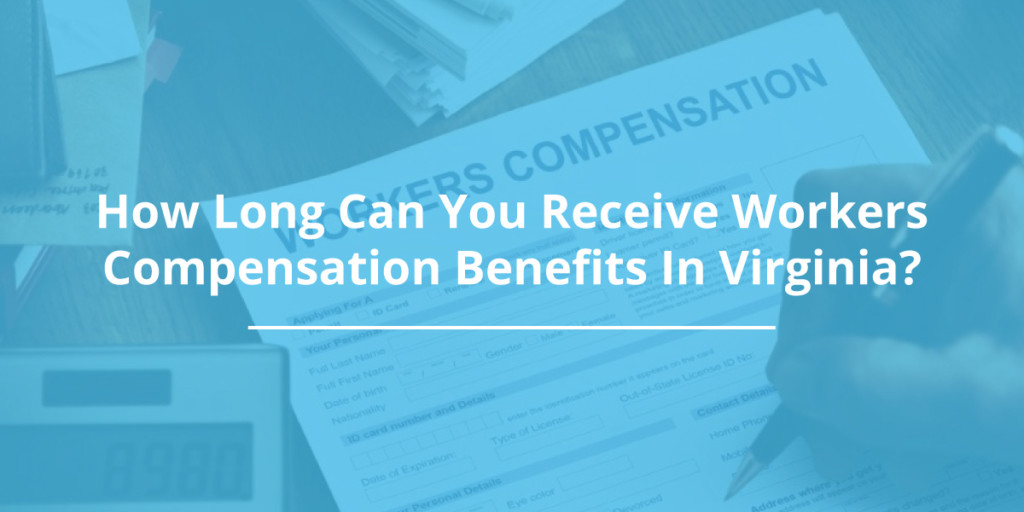
One of the most common questions about workers’ compensation benefits is how long they will last. The answer starts out like most answers to questions about workers’ compensation claims in Virginia. It depends. Each case is different and there are many variables that will determine exactly how long you will receive benefits.
It’s also important to understand that there are different types of benefits. An injured worker can receive workers’ comp benefits for lost wages as well as benefits for medical treatment. You may receive both for the duration of your recovery or one may stop before the other, and in some cases, you may be eligible to receive lifetime medical benefits. The exact amount of time that you will receive benefits will depend on the severity of your injury, how long it takes you to recover, if you recover fully, and if you are able to return to work.
Virginia Workers’ Compensation Benefits Limits
For most workers’ compensation cases, there is an overall limit of 500 weeks on how long you can receive benefits. There are exceptions to this limit in the case of some especially severe injuries such as spinal cord injuries, brain injuries, or the loss of multiple limbs.
Workers’ Compensation Benefits for Full Incapacity
Under Virginia workers’ compensation laws, a worker is considered fully incapacitated when their injury completely prevents them from working at all. In this case, the injured worker should receive lost wage benefits until his treating physician releases him to full duty.
While unable to work–totally or partially–and undergoing medical treatment, workers’ comp will pay for a portion of lost wages as well as continue to pay for resulting lifetime medical costs including things such as doctor visits, hospitalization, prescription drugs, prosthesis, medical tests, and physical therapy.
Workers’ Compensation Benefits for Partial Incapacity
A worker is considered to be partially incapacitated when their injury allows them to work, but with some sort of restriction that affects their ability to earn the same as their pre-injury job.
Under these circumstances, benefits are also generally paid until the treating doctor releases the worker to full duty. Payments for lost wage benefits will be calculated as a portion of the difference between what the worker was able to earn before the injury and what the worker is able to earn after the injury. The worker is also entitled to continuing lifetime medical benefits.
Workers’ Compensation Benefits for Permanent Loss
The Virginia Workers’ Compensation Act sets specific benefits if a worker suffers permanent loss of use of a body part as the result of a workplace accident. For complete loss of a body part, workers will receive compensation for the time periods listed below.
In cases involving permanent partial loss of a body part, the treating doctor will describe how much functionality or mobility has been lost as a percentage. That percentage will then be used to make adjustments to the figures below in order to determine the final benefits awarded.
- Thumb – 60 weeks
- First finger – 35 weeks
- Second finger – 30 weeks
- Third finger – 20 weeks
- Fourth finger – 15 weeks
- First phalanx of the thumb or any finger – one-half compensation for loss of entire thumb or finger
- The loss of more than one phalanx of a thumb or finger is deemed the loss of the entire thumb or finger. Amounts received for loss of more than one finger shall not exceed compensation provided for the loss of a hand.
- Great toe – 30 weeks
- A toe other than a great toe – 10 weeks
- First phalanx of any toe – one-half compensation for loss of an entire toe
- The loss of more than one phalanx of a toe is deemed the loss of the entire toe
- Hand – 150 weeks
- Arm – 200 weeks
- Foot – 125 weeks
- Leg – 175 weeks
- Permanent total loss of the vision of an eye – 100 weeks
- Permanent total loss of hearing of an ear – 50 weeks
- Severely marked disfigurement of the body resulting from an injury not otherwise compensated by this section – not exceeding 60 weeks
- Byssinosis (brown lung) – 50 weeks
- Pneumoconiosis (chronic lung disease caused by the inhalation of particles), including but not limited to silicosis and asbestosis, medically determined to be in the:
- First stage – 50 weeks
- Second stage – 100 weeks
- Third stage – 300 weeks
Workers’ Compensation Benefits for Permanent and Total Incapacity
As we mentioned above, there are some exceptions where Virginia’s workers’ compensation laws state that an injured worker is entitled to receive benefits for their lifetime. Under the following circumstances, workers’ comp benefits may be continued for life:
- Loss of both hands, feet, legs, arms, eyes, or any two of these in the same accident
- Injury resulting in total paralysis as determined by the Virginia Workers’ Compensation Commission based on medical evidence
- Brain injury so severe as to leave the employee unemployable in any type of gainful employment
Contact Trusted Attorneys Today
At Injured Workers Law Firm, we only deal with workers’ compensation cases. We have extensive experience and in-depth knowledge of the Virginia workers’ compensation process. If you’ve suffered a workplace injury anywhere in Virginia, we’re here to help. Contact us anytime and we’ll be happy to talk about your case and discuss what we can do to help you get everything to which you’re entitled.
About the Author: Michele Lewane
The Injured Workers Law Firm is a Richmond, Virginia based firm solely focused on serving clients with workers' compensation claims in Virginia. If you have questions about your benefits or if you would like more information on the Virginia workers’ compensation system, order our book, “The Ultimate Guide to Workers’ Compensation in Virginia” , or call our office today (804) 755-7755.


